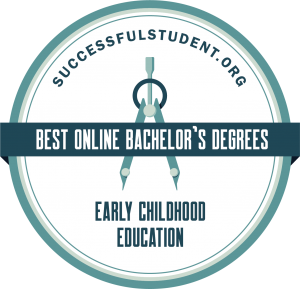This ranking of the best online bachelor's degrees in Early Childhood Education is designed for online students to make informed college and degree decisions.
Our rankings use data from the National Center for Education Statistics, and the influence within academic publications from the faculty and alumni of these colleges.
For more information on our objective ranking methodology see our College Rankings page.
An online Early Childhood Education Bachelor's degree provides graduates opportunities to pursue a variety of rewarding careers in the early childhood education field, including pre-school education, early childhood special education, early elementary education, and administration.
Financial Aid Guide for Online College Students
The Best Online Early Childhood Education Bachelor's Degrees
University of Washington-Seattle Campus
College of Education
Seattle, Washington

The highly regarded College of Education at the University of Washington has more than 300 partnerships with schools, nonprofits and communities. The College of Education works with poverty-impacted, culturally diverse schools to solve real-world educational challenges and close opportunity and achievement gaps.
The College of Education in partnership with the UW Continuum College created the online Bachelor of Arts in Early Care and Education.
This program integrates academic theory, current research in the early childhood education field as well as practical training in the field. The program features two pathways: The Core Pathway provides students a strong foundation in early childhood subjects.
The pathway prepares students to begin or advance in a wide array of career areas such as family and community support, social and health services, policy and advocacy, child protective services, as well as children's museum education and outreach.
This pathway also prepares students for graduate study in subjects related to young children and families. The Teaching and Learning Pathway includes the same coursework as the Core Pathway, with additional courses specific to early childhood teaching and learning.
The Teaching and Learning Pathway prepares students to enter or advance in early learning professions including preschool teacher, coach or mentor, and director or owner of a preschool or child care center.
The pathway also provides students a strong base for future graduate study in elementary education, early childhood curriculum, special education, or leadership. The online degree program includes service-learning courses; students can apply what they've learned while working alongside early childhood education professionals.
Individuals already working in the field can complete the service learning at their current jobs, other students can contact early learning sites in their community.
Credit requirements: The program requires students complete at least 180 total credits.
Foundation courses:
- Understanding Early Childhood & Family Studies Research
- Family & Community Influences on the Young Child
- Social Policy & Young Children & Families
- Infants & Young Children: Risk & Resilience
Students should be able to transfer college-level academic credits for courses which fall within the UW Areas of Knowledge.
University of Nebraska-Lincoln
College of Education and Human Sciences - Department of Child, Youth, and Family Studies
Lincoln, Nebraska

The Department of Child, Youth, and Family Studies research focuses on the development of individuals and relationships within families, communities and schools. The Department, through interdisciplinary collaboration, address important issues for a wider impact in research, teaching, outreach and, extension.
The Department of Child, Youth, and Family Studies, places value on international engagement and global citizenry. The Department provides graduate and undergraduate degrees.
The online Bachelor of Science in Early Childhood Education in a Mobile Society program emphasizes a foundation in child development, assessing and meeting individual needs, classroom management as well as adaptation to developmental differences.
This program combines practical and theoretical knowledge of teaching and pedagogy. The program prepares students to work with young children in highly mobile families, such as families with military backgrounds.
Provided as part of the Great Plains Interactive Distance Education Alliance (IDEA), students in the online program enroll in coursework and receive their degree from the University of Nebraska, Lincoln; faculty members from other, participating universities in the Great Plains IDEA, may teach the online courses in the program.
Credit requirements: 120 credit hours
Selection of core courses:
- Child Development - Birth to 3
- Child Development - 4 to 8
- Development of Curriculum for Children Ages Birth to 3
- Development of Curriculum for Children Ages 4 to 8
- Child Guidance and Classroom Environments
- Assessing Young Children and their Environments to Enhance Development
- Understanding and Adapting for Developmental Differences
- Administration and Supervision in Early Childhood Settings
Students must complete a practicum.
The Higher Learning Commission (HLC) provides the University of Nebraska, Lincoln with accreditation.
Kansas State University
College of Human Ecology - School of Family Studies and Human Services
Manhattan, Kansas
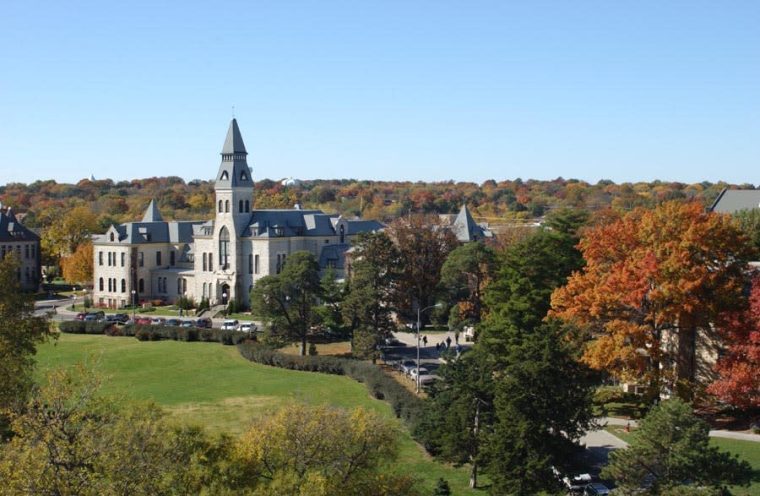
The School designed the online Bachelor of Science in Early Childhood Education degree completion program for students already working in the field and seeking to advance their careers via further education. The program results in eligibility for licensure in Kansas.
The curriculum blends early childhood education and early childhood special education. The program covers subjects such as curriculum planning and classroom management, different models of interaction, different models of child development, assessing and meeting the diverse needs of students, and more.
Credit requirements: 120 credit hours
Selection of courses:
- Introduction to Human Development
- Early Childhood
- Introduction to Early Childhood Education
- Environments in Early Childhood
- Interaction Techniques with Young Children
- Language Development
- Assessment of Young Children
- Exceptional Development in Early Childhood
Students in the online program must also complete a practicum.
The Bachelor in Early Childhood Education degree program has accreditation from the National Council for the Accreditation of Teacher Education (NCATE). Kansas State University received accreditation from the Higher Learning Commission (HLC).
University of Cincinnati-Main Campus
College of Education, Criminal Justice, and Human Services - School of Education
Cincinnati, Ohio

The School of Education, the largest of the three schools in the College of Education, Criminal Justice, and Human Services, provides teacher licensure, endorsement programs, and a variety of graduate and undergraduate programs. The School of Education has over 50 full-time faculty members.
The online Bachelor of Science in Early Childhood Education degree program utilizes a curriculum based on the standards of the National Association for the Education of Young Children (NAEYC). The program blends theoretical knowledge with field experience. The program prepares students to teach in an array of settings such as preschools, childcare centers, Head Start programs, public schools as well as related programs for children.
Students in the Early Childhood Education bachelor's online degree program can develop a solid foundation via field experience, combined with theoretical knowledge of classroom management, child development models, cultivating family relationships and involvement, the teacher-student relationship, assessment, and more.
Credit requirements: 120 credit hours total
Selection of core courses:
- Introductory Child Development
- Classroom Organization and Guidance
- Individuals with Exceptionalities
- Infant and Toddler Care and Education
- Families, Communities, and Schools
Students must complete field experience and a practicum.
The BS in Early Childhood Education degree program has accreditation from the Council for the Accreditation of Educator Preparation (CAEP). The University of Cincinnati received accreditation from the Higher Learning Commission (HLC).
Ball State University
Teachers College - Department of Elementary Education - Online and Distance Education
Muncie, Indiana
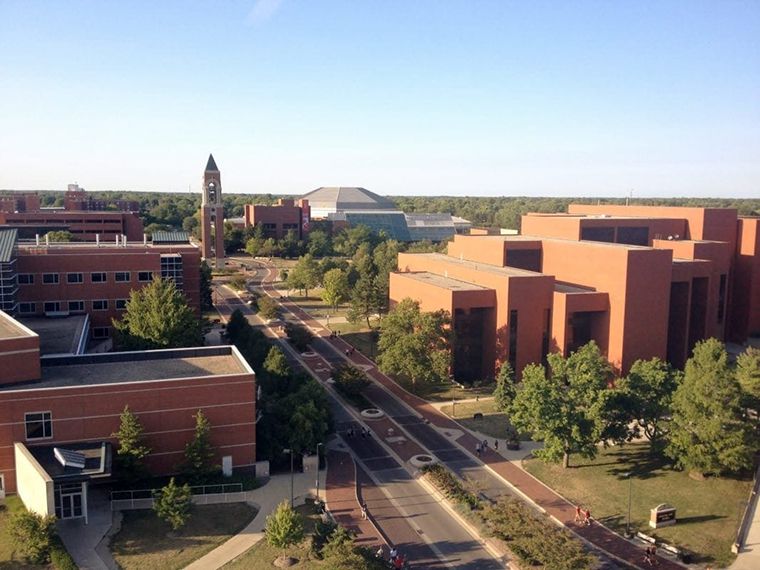
The Department of Elementary Education, housed in the Teachers College, has a focus on preparing leaders in the early childhood and elementary education field. The Department works collaboratively across colleges and departments.
The Department has a Bachelor in Early Childhood Education online degree completion program for students already working in the field.
The curriculum focuses on the needs of a diverse population of children, from birth to age five, including special needs children.
The online Bachelor's degree in Early Childhood Education emphasizes the promoting of child development and learning, teaching methods and learning models, observing and assessing of students to meet individual developmental needs, and building family and community relationships.
Credit requirements: 120 credit hours
Selection of courses:
- Early Childhood Curriculum and Instruction
- Administration of Early Childhood Programs
- Social, Historical, and Philosophical foundations of Education
- Assessment and Observation in Early Childhood
- Theory and Practices in Early Childhood Special Education
- Educational Psychology for Elementary Education
- Early Emergent Literacy
- Infant/Toddler Curriculum and Environment
Students in the online Bachelor's in Early Childhood Education program must also complete a practicum.
Students can obtain college credit through exams such as Ball State University departmental exams and College Level Examinations Program (CLEP). Veterans may qualify for credits for military service.
Completion of the program (birth through age 5) does not lead to certification or licensure in any state.
The Bachelor in Early Childhood Education degree program has accreditation from the National Council for the Accreditation of Teacher Education (NCATE). The Higher Learning Commission (HLC) provides Ball State University with accreditation.
Northern Arizona University
College of Education - Department of Teaching and Learning
Flagstaff, Arizona

The Department of Teaching and Learning provides education programs to prepare pre-service teachers and support in-service teachers to make positive differences in the lives of children and young adults.
The Bachelor of Applied Science in Early Childhood Education online degree completion program provides students a general knowledge of child development, preschool curriculum and assessment, and early literacy development.
The program, steeped in national early childhood standards, focuses on educating students regarding the expanding, specialized knowledge base concerning early childhood. The program prepares students for career opportunities such as working in preschools, state agencies, non-profit organizations as well as other venues.
Credit requirements: 120 credit hours
Selection of core courses:
- Early Childhood Development
- Play Education
- Curriculum and Assessment in Early Childhood
- Educational Psychology in Elementary and Middle-School Education
- Foundations of Special Education: Early Childhood
Students complete an independent study project as part of the capstone experience.
The National Council for Accreditation of Teacher Education (NCATE) provides the BAS in Early Childhood education program with accreditation. The Higher Learning Commission (HLC) provides Northern Arizona University with accreditation.
Western Carolina University
College of Education and Allied Professions - Human Services Department
Cullowhee, North Carolina

The Human Services Department in the College of Education and Allied Professions provides a variety of undergraduate, graduate and post-graduate degrees to meet an array of human needs. The Department also serves communities through leadership, scholarship, and service.
The online Bachelor of Science in Birth to Kindergarten with a concentration in Early Childhood Education degree completion program focuses on developing an understanding of child development and the role adults have in influencing their development.
The program prepares students to work with children from an array of backgrounds in environments other than public schools, such as developmental assistance programs and private day care facilities.
Credit requirements: 120 credit hours
Core courses:
- Introduction to Birth-Kindergarten
- Literacy
- Foundations of Child Study
- Environments for Young Children
- Child Development
- Early Childhood Curriculum
- Adult-Child Interaction
- The Exceptional Child
- Promoting Social-Emotional Competencies
- Adaptations and Modifications for Young Children with Disabilities
Students must also complete a capstone project.
Western Carolina University received accreditation from the Southern Association of Colleges and Schools Commission on Colleges (SACSCOC).
Fort Hays State University
Hays, Kansas
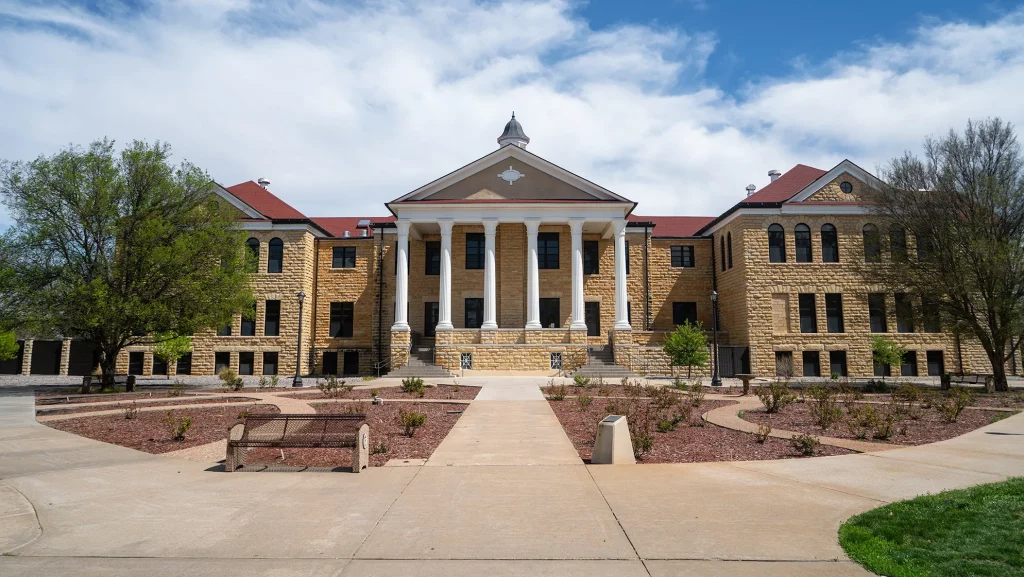
The Department of Teacher Education combines theory and pedagogy with real-world classroom experiences. The Department has a dedication to working with the latest in educational technology. The Department of Teacher Education offers most of its programs on-campus and online.
The online Bachelor of Science in Early Childhood Unified degree program combines theoretical knowledge and practical field experience.
The degree focuses on effective assessment and curriculum planning, models of growth and development, diversity in learning, and classroom management.
The program culminates in licensure in the state of Kansas. The program also prepares students to work in a variety of educational settings, including special education.
Credit requirements: 126 credit hours
Selection of courses:
- Emergent Literacy
- Child Care Management & Admin
- ECU Mathematics Methods
- Assessment in Special Education
- Behavior Strategies & Support
- Curriculum & Assessment
- Technology Applications in Special Ed
- Educational Psychology
Students in the online Bachelor in Early Childhood Unified degree program must complete student teaching experience and an internship.
The Department of Teacher Education received accreditation from the National Council for the Accreditation of Teacher Education (NCATE). The Higher Learning Commission (HLC) provides Fort Hays State University with accreditation.
University of Toledo
Judith Herb College of Education - Department of Early Childhood Education, Higher Education, and Special Education
Toledo, Ohio
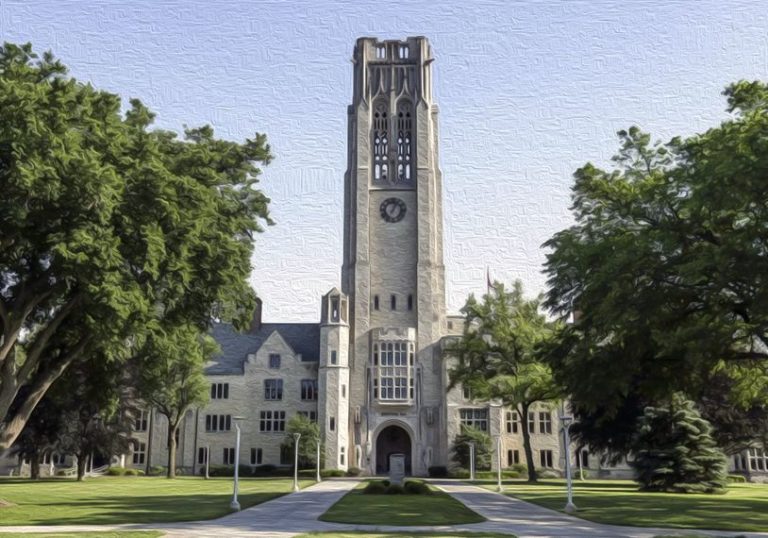
The Department of Early Childhood Education, Higher Education and Special Education provides undergraduate and graduate licensure programs in early childhood education, higher education and special education.
The University designed the online Bachelor in Early Childhood Education degree completion program, a non-licensure, fast-track program, for students already working in the field.
The curriculum emphasizes the leadership role of the teacher, partnerships between teachers and families, a relationship-based model of early childhood learning, and individualized learning.
Selected core coursework:
- Creating Effective Learning Environments
- Supporting ECE Science and Math
- Early Literacy, Language, and Social Studies
- Meeting the Needs of Young Children with Disabilities
The degree includes fieldwork.
The Council for the Accreditation of Educator Preparation (CAEP) provides the education programs at Judith Herb College of Education with accreditation. The Higher Learning Commission (HLC) provides the University of Toledo with accreditation.
Indiana Wesleyan University-Marion
College of Adult and Professional Studies - School of Educational Leadership
Marion, Indiana

The School of Educational Leadership provides Christ-centered education programs which address the spiritual and professional challenges of P-12 educators, leaders, and counselors through providing them an integrated experience of character, leadership development and scholarship.
The Bachelor of Science in Early Childhood Education online degree completion program provides options for a licensure and non-licensure track.
The program covers subjects such as classroom management, curriculum planning methods, child development and learning, observation and assessment methods, and cultivating family and community relationships.
Credit requirements: 120 credit hours
Selection of core professional courses:
- Educational Psychology for Early Learners
- Foundations of Reading and Language Structure
- Early Childhood Special Education
- Instructional Tools for the Teaching of Reading
- Foundations of Reading and Language Structure
- Literature Focused Preschool Environments
- Literacy in the Primary Grades
- Social Studies and Fine Arts in the Primary Grades
Students must complete student teaching field experience. The program uses a cohort model, in which students complete their coursework alongside a team of other like-minded students.
The Higher Learning Commission (HLC) provides Indiana Wesleyan University with accreditation.
University of Nebraska at Kearney
College of Education - Department of Teacher Education - University of Nebraska at Kearney, eCampus
Kearney, Nebraska

The Department of Teacher Education provides students numerous opportunities to interact in practicums and student teaching experiences. The Department provides undergraduate and graduate degrees.
The university designed the online Bachelor of Arts in Education: Early Childhood Inclusive degree completion program, for preschool assistants, in-service teachers, HeadStart programs staff members as well as other non-traditional students.
The program provides two specialization options: Birth through Kindergarten, and Age Three to Grade Three. The online BA program, with an emphasis on field experience, prepares in-service students to advance their careers through combining pedagogical theory with practical knowledge of teaching and classroom management.
Credit requirements: 120 credit hours
Selection of core courses:
- Phonics and Word Study
- Literacy Assessment
- Primary Grades Literacy
- Foundations of Early Childhood Educations
- Methods of Inclusive Education: Birth to Age 3
- Methods of Inclusive Education: Ages 3-5
- Early Childhood Program Administration
- Serving Young Children with Special Needs
Students must also complete student teaching and other field experience.
The Higher Learning Commission (HLC) provides the University of Nebraska at Kearney with accreditation.
Mount Vernon Nazarene University
School of Education and Professional Studies - Education Department
Mount Vernon, Ohio
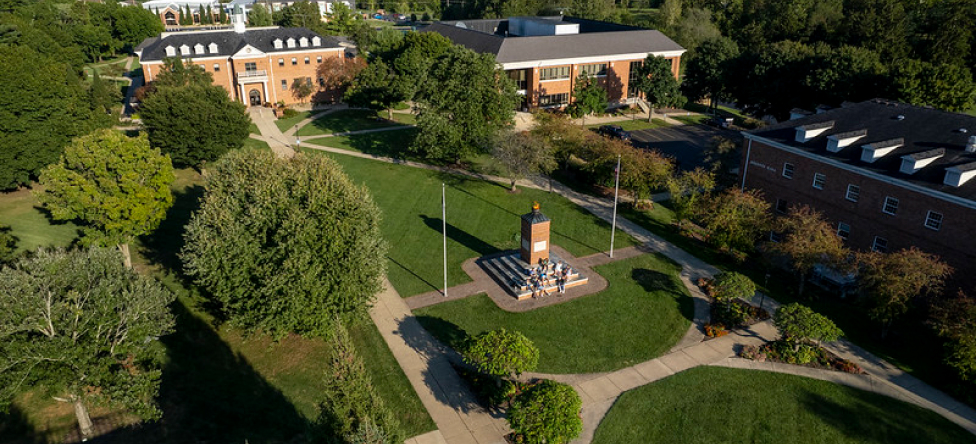
The Teacher Education Program provides research-based undergraduate and graduate education. The program has partnerships with local schools and districts. The program provides candidates opportunities to learn about and to work with diverse populations.
The online Bachelor of Arts in Early Childhood Education degree completion program has a focus on field experience.
The program integrates pedagogy and childcare theory with practical knowledge, skill, and experience.
The degree completion program results in licensure in the state of Ohio.
Required credit: 123 credit hours
Selection of core courses:
- Educational Technology
- Content Reading
- Developmental Literacy
- Adolescent Literature
- Introduction to Multicultural Education
- Classroom Management
Students must complete Student Teaching and field experience.
The National Council for the Accreditation of Teacher Education (NCATE) provides the Teacher Education programs at Mount Vernon Nazarene University with accreditation. The Higher Learning Commission (HLC) provides Mount Vernon Nazarene University with accreditation.
Brenau University
College of Education - Brenau Online
Gainesville, Georgia

The College of Education provides undergraduate and graduate degrees, postgraduate certification as well as other credentials for entrance and advancement in education careers. The online Bachelor of Science in Early Childhood Education degree program, helps students achieve licensure and pursue a career in the field.
The degree program focuses on evaluating the needs of the growing child. The online program prepares students to work with young children in an array of educational environments as teachers, curriculum developers, daycare directors, consultants, and more.
Credit requirements: a minimum of 120 credit hours
Selection of core courses:
- Developmental Psychology
- School and Society
- Introduction to Multicultural Education
- Teaching Learners with Special Needs
- Classroom Management
Students must complete field experience.
The College of Education received accreditation from the National Council for the Accreditation of Teacher Education (NCATE). Brenau University received accreditation from the Southern Association of Colleges and Schools Commission on Colleges (SACSCOC).
Florida International University
College of Arts, Sciences & Education, School of Education and Human Development, Department of Teaching and Learning, FIU Online
Miami, Florida

The Department of Teaching and Learning provides programs which support teaching professionals throughout their careers. The Department provides graduate, undergraduate and certificate programs and an International program.
The online Bachelor of Science in Early Childhood Education degree program focuses on the complete development of the whole child during early childhood years (up to age five).
The program provides practical and theoretical knowledge in areas such as: Educational psychology, child development, early childhood programs and curriculum, special needs of children and their families, early social and emotional development, teaching beginning literacy, math, and science, and community and young children.
Credit requirements: 120 credit hours
Professional education courses:
- Early Childhood Educational Programs
- Issues in Early Childhood Education
- Special Needs of Children and their Families
The education programs at Florida International University received accreditation from the Council for the Accreditation of Education Preparation (CAEP). Florida International University received accreditation from the Southern Association of Colleges and Schools Commission on Colleges (SACSCOC).
Bluefield University
School of Education
Bluefield, Virginia

At the School of Education, pedagogical knowledge, content knowledge, and caring teaching skills form the foundation of assignments, coursework, demonstrations, evaluations, and research. The Early Childhood Education online program provides a blend of theory and practical knowledge.
The program prepares students to work with children from birth to age eight in an array of public and private educational environments. The online ECE degree program covers curriculum design, classroom management, developmental psychology, and a holistic approach to learning.
Credit requirements: 120 credit hours
Selection of core courses:
- Foundations of Early Childhood Development
- Creative Development
- Infant/Toddler/Child Development
- Guiding Young Children
- Body-Brain Based Learning
- Designing Physical Environments
- Family, School, & Community Involvement
- Observing and Assessing Young Children
- Program Development for Young Children
Students need to complete a field experience and a practicum.
The Teacher Education program at Bluefield College received accreditation from the Teacher Education Accreditation Council (TEAC). Bluefield College received accreditation from the Southern Association of Colleges and Schools Commission on Colleges (SACSCOC).
Eastern Oregon University
College of Education - EOU Online
La Grande, Oregon

The College of Education at Eastern Oregon University provides undergraduate and graduate degrees and courses for Career and Technical Education instructors. The online Early Childhood Education (ECE) non-licensure degree program prepares students to work with young children from birth to age eight.
Students can gain knowledge of early childhood foundations, development, learning as well applying the knowledge in learning to create early care and educational programs focused on developing appropriate learning experiences for young children.
The online ECE program prepares graduates to work in the private sector as teachers, educational coordinators, advocates, program directors and administrators, or as policymakers in schools, businesses, mental health agencies and community, private or church-related programs.
Credit requirements: 180 quarter-credit hours
Selection of core courses:
- Family Collaboration in Early Childhood
- Positive Behavior Guidance and Management in EC
- Play & Learning Environments in Early Childhood
- Literature for Young Children
- Early Childhood Health and Wellness
- Teaching in Early Childhood
- Assessment and Observation in Early Childhood
- Multicultural Education in Early Childhood
- Administration in Early Childhood
Students in the online Early Childhood Education non-licensure degree program must complete a practicum.
The Northwest Commission on Colleges and Universities (NWCCU) provides Eastern Oregon University with accreditation.
University of Arizona-Sierra Vista
UA Online
Sierra Vista, Arizona
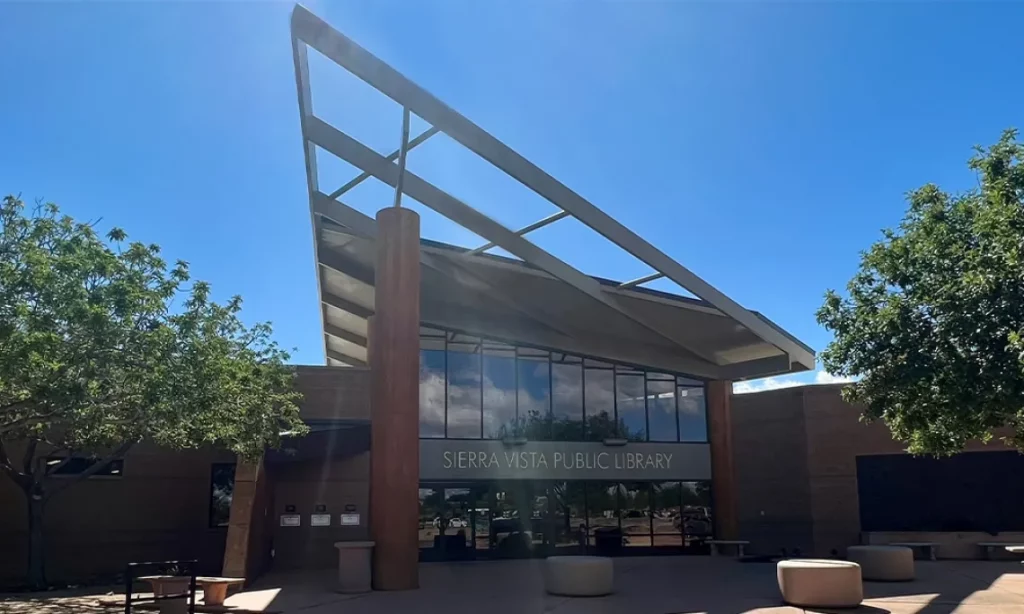
University of Arizona South, the University of Arizona's branch campus, extends the University's educational mission in multiple locations and with targeted degree programs. University of Arizona South partners with community colleges to provide bachelor degrees.
University of Arizona South offers traditional degree programs in education, computer science, humanities and the social sciences and also Bachelor of Applied Science programs, Master's programs in education, and an array of continuing education programs.
The online Bachelor of Applied Science in Early Childhood Education program covers subjects such as balanced curriculum, classroom management, teaching exceptional children, early literacy, analysis methods, planning methods, and more. The program prepares students for careers in the early childhood education field in an array of public and private environments.
Credit requirements: 120 total credit hours
Selection of core courses:
- Teaching Early Childhood Creative Arts and Physical Education
- Teaching Exceptional Children in Early Childhood
- Early Childhood Language and Literacy
Students must also complete a capstone project.
The Higher Learning Commission (HLC) provides the University of Arizona South with accreditation.
Florida State College at Jacksonville
School of Health, Education and Human Services
Jacksonville, Florida
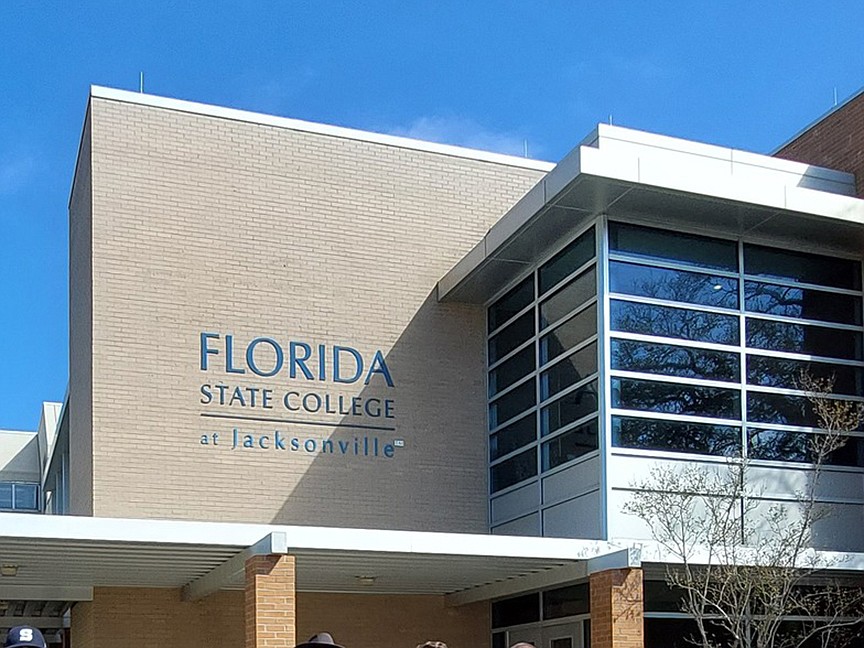
The School of Health, Education and Human Services focuses on the physical, social and educational factors which promote and elevate the community's overall way of life. The School provides a variety of associate and bachelor degree programs.
The Bachelor of Science in Early Childhood Education online degree results in licensure in the state of Florida. The program prepares graduates to educate children from Pre-K to the Third Grade.
Students learn to assess and meet the developmental needs of young children in an array of public and private educational settings.
Credit requirements: 120 credit hours
Selection of core courses:
- Classroom Management/Guidance
- Integrated Science and Math for Young Children
- Assessment, Evaluation, and Diagnosis
- Special Topics in Early Childhood
- Language and Literacy in Early Childhood Education
- Teaching English Language Learners
Students need to complete a portfolio and a full-time internship at an accredited public or private primary school.
Florida State College at Jacksonville received accreditation from the Southern Association of Colleges and Schools Commission on Colleges (SACSCOC).
Colorado Christian University
College of Adult and Graduate Studies - Curriculum and Instruction Education Division
Lakewood, Colorado

The College of Adult and Graduate Studies provides over 50 academic programs designed for adults and adult transfer students.
The College of Adult and Graduate Studies provides accelerated degree completion programs for adult students. The College offers associate's degrees, bachelor's degrees, master's degrees, certificates and licensing programs in a variety of subjects.
The online Bachelor of Arts with Early Childhood Education Licensing degree program qualifies students for licensing in the state of Colorado.
The program, focused on early childhood education within the context of a Christian worldview, combines theory and practical knowledge to prepare students for an array of careers working with children from birth to age eight.
The program covers areas such as child and educational psychology, program assessment, curriculum development, and more.
Credit requirements: 120 credit hours
Selection of core courses:
- Teaching as a Profession
- Classroom and Instructional Management
- Assessment and Measurement
- Special Needs Methods
- Psychological Foundations of Education
- Diverse Reader: Intervention for Developing Readers
Students in the online program need to complete field experience and an internship.
The University also provides a non-licensure program which may be more useful to students in some states. The Higher Learning Commission (HLC) provides Colorado Christian University with accreditation.
Southwestern College
Professional Studies - Education Division
Winfield, Kansas

Southwestern College Professional Studies provides continued college education to working adults, individuals seeking to improve their careers, and military service members.
The online Bachelor of Arts in Early Childhood Education degree completion program prepares students for a variety of careers in the field of education. The program has a focus on evaluating and meeting the needs of young children from a variety of backgrounds, from birth to the age of eight.
The program concludes with students obtaining licensure in the state of Kansas. The program partners with several special education programs, including PALS and REACH and other early child care centers across the country.
Credit requirements: 124 credit hours
Selection of pre-professional education requirements:
- Introduction to Early Childhood Education
- Motor Development, Expressive Arts, Social Studies
- Teaching Young Children with Disabilities
- Infant Development
- Introduction to the Reading Process
- Assessment Strategies in Early Childhood
- Administration, Guidance, and Behavior
- Technology in Special Education
Students need to complete a practicum.
The Council for the Accreditation of Educator Preparation (CAEP) provides the BA in Early Childhood Education degree program with accreditation. The Higher Learning Commission (HLC) provides Southwestern College with accreditation.
Regent University
College of Arts and Sciences - Department of Teacher Education and Interdisciplinary Studies
Virginia Beach, Virginia

The College of Arts and Sciences provides on-campus and online degrees. The College provides a biblically centered curriculum. The online Bachelor of Science in Early Childhood Education non-licensure degree program focuses on the development and growth of young children from birth to age eight.
Students learn best practices for implementing high-quality services and to create effective lesson plans based on proven teaching methods. They also learn business management and law for owning and operating an early childhood care center.
Credit requirements: 120 credit hours
Selection of core courses:
- Guiding Young Children
- Wellness in Childcare Programs
- Teaching Content to Children
- Administration of Childcare Programs
- Child and Adolescent Growth and Development
Students must complete field experience.
The teacher education program at Regent University received accreditation from the Teacher Education Accreditation Council (TEAC). Regent University received accreditation from the Southern Association of Colleges and Schools Commission on Colleges (SACSCOC).
Chaminade University of Honolulu
Division of Education - The Office of Professional and Continuing Education
Honolulu, Hawaii

The Division of Education fosters the professional development of teachers and education leaders via programs based in the liberal arts tradition, Catholic Marianist values, best practices and, current research.
The online Bachelor of Science in Early Childhood Education prepares students seeking to work with young children ages 2 1/2 through six years in private schools and other educational settings.
The program utilizes a curriculum aligned with the National Association for the Education for Young Children (NAEYC) standards. The University also provides a Montessori Credential track, intended to prepare students for careers in Montessori schools. The track received accreditation from the Montessori Accreditations Council for Teacher Education (MACTE).
Required credit: 120 credit hours
Selection of major requirements:
- Educational Technology
- Childrens' Literature
- Developmentally Appropriate Practice I
- Developmentally Appropriate Practice II
- Language Arts: Curriculum and Methods
- Math: Curriculum and Methods
- Curriculum Foundations
Students in the Early Childhood Education bachelor's degree program must complete fieldwork experience.
The programs of the Division of Education received accreditation from the Teacher Education Accreditation Council (TEAC). Chaminade University of Honolulu received accreditation from WASC Senior College and University Commission (WSCUC).
Winston-Salem State University
Department of Education
Winston-Salem, North Carolina

Winston-Salem State University, a public, university founded in 1892, enrolls more than 5,000 students. The school offers a variety of undergraduate, graduate, and professional programs.
Winston-Salem State University offers an online Birth to Kindergarten Education (BKE) degree program which results in initial teacher licensure.
The program focuses on providing the contemporary knowledge and skills necessary for students to pursue licensure and enter careers in early childhood education programs in a variety of settings, including private and public Pre-K programs, early childhood centers, and other agencies.
Students enhance their ability to work with early childhood students, up to kindergarten age, helping them develop, grow, and prepare for future education.
Credit requirements: 120 credit hours
Selection of core courses:
- Cultural and Individual Variations in Children and Families
- Early Language and Literacy
- Creative Environments for Young Children
- Family Lifespan Development
- Child/Family Assessment
The education department of Winston-Salem State University has accreditation from the National Council for the Accreditation of Teacher Education (NCATE). Winston-Salem State University received accreditation from the Southern Association of Colleges and Schools Commission on Colleges (SACSCOC).
South Dakota State University
College of Education and Human Sciences, Department of Teaching, Learning and Leadership
Brookings, South Dakota

The College of Education and Human Sciences provides a variety of undergraduate and graduate programs and certifications. The College of Education consists of the Departments of Counseling and Human Development, Consumer Sciences, Health and Nutritional Sciences and Teaching, Learning and Leadership.
The SDSU's partnership with the Great Plains Interactive Distance Education Alliance (GPIDEA) provides the online Bachelor of Science in Early Education and Care degree program.
The program prepares students to work in early childhood environments with young children, especially children whose family members are highly mobile. Graduates can seek jobs in a variety of programs which offer early care and education in the community and on military installations.
Students in the online Bachelor's in Early Education and Care degree program learn to use child observation, documentation, and other forms of assessment, in partnership with other professionals and families to positively influence the development of children.
Credit requirements: 120 credits. Students in the program complete 72 credits through SDSU and complete 48 credits through the GPIDEA consortium.
Selection of Major requirements:
- Health, Safety and Nutrition of Young Children
- Child Development Birth to 3
- Child Development 4 to 8
- Professional Development for Early Childhood Education Providers
- Diversity in the Lives of Young Children and Families
- Working with Families
- Administration and Supervision in Early Childhood Settings
- Assessing Young Children to Enhance Development
The Teaching, Learning, and Leadership Department has accreditation from the National Council for Accreditation of Teacher Education Programs. The Higher Learning Commission provides South Dakota State University with accreditation.
Mayville State University
Division of Education
Mayville, North Dakota
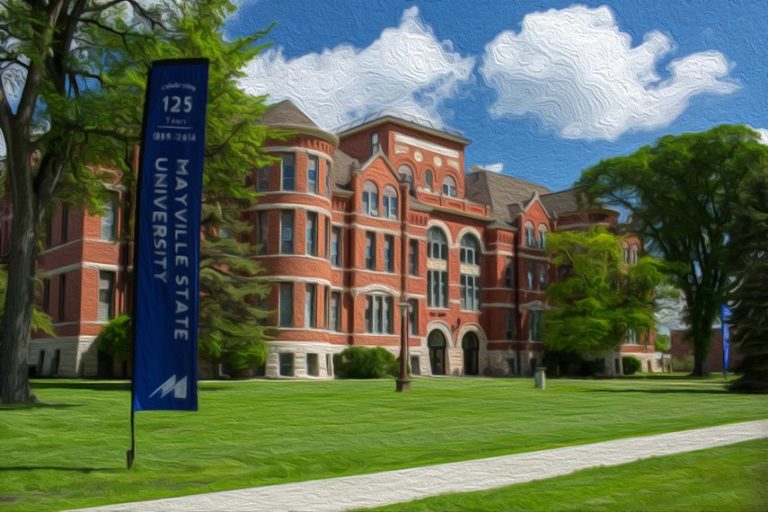
The online Bachelor of Arts in Early Childhood Education degree program prepares students to work in an array of leadership positions such as early childhood education teacher, curriculum specialist, early childhood administrator, supervisor, and education coordinator in preschool programs.
The program includes field experience working with children. The program includes field experiences designed for teaching Pre-K, K and Primary Grades. Students complete these experiences at schools and other educational institutions.
The online Early Childhood Education Bachelor's degree program includes these specializations: Administration, Infant/Toddler, Special Needs/Paraprofessional, and After School.
Selection of core professional courses:
- Observations, Assessments, and Interpretation Techniques
- Language & Literacy in ECE
- Infants and Toddlers
- Administration & Leadership in ECE
- Art, Music, and Play in ECE
- Human Relations and Cultural Diversity
- Child and Adolescent Psychology
- Applied Psychology
The Bachelor of Arts in Early Childhood Education has accreditation from the Council for the Accreditation of Educator Preparation (CAEP). The Higher Learning Commission provides accreditation.
Ranking Methodology
This ranking was created using Successful Student's ranking algorithm. This algorithm uses the following data points to calculate a school's ranking placement:
- Acceptance rate
- Graduation rate
- Cost of undergraduate tuition
- Percentage of first time undergraduates awarded aid
- Percentage of students who are fully online
- Academic influence
Salary Information
| Position | Average Median Salary |
|---|---|
| Elementary school teachers, except special education | $60,660 |
| Special Education Teachers | $61,420 |
| Preschool teachers | $31,930 |
| Individual and family services | $31,260 |
| Child daycare services | $25,460 |
| Source: Bureau of Labor Statistics |
Early Childhood Educators Professional Associations
National Association for the Education of Young Children (NAYCE)
The NAYCE oversees a voluntary, national accreditation system for high-quality early childhood programs. The NAYCE specifically focuses on the quality of educational and developmental services for all children from birth through age 8.
The NAYCE produces an array of early childhood resources and sponsors a variety of initiatives to improve the preparation of early childhood educators. Members have opportunities to participate in local and national services via the association's network of over 300 local, state, and regional affiliates.
Association for Childhood Education International (ACEI)
The ACEI includes a world community of educators and advocates exploring innovation, sharing information, and advocating for children. The Association promotes the professional growth of educators and individuals dedicated to the needs of children in a changing society. The ACEI is also involved in promoting the optimal education and development of children, from birth through early adolescence.
National Head Start Organization (NHSA)
NHSA focuses on meeting the needs of Head Start children and their families. The organization advocates for policies to strengthen Head Start services and provides training and professional development to Head Start staff. The NHSA develops and distributes research, information, and resources which enhance Head Start program delivery.
Council for Exceptional Children (CEC), Division for Early Childhood (DEC)
The DEC is an international membership organization for individuals who work with or on behalf of young children (0-8) with disabilities and other special needs and their families.
The Division for Early Childhood promotes policies and helps to advance evidence-based practices which support families and enhance the optimal development of young children (0-8) who have or are at risk for developmental delays and disabilities.
More resources:
- What is the Difference Between College and University?
- The Best Online Master’s Degrees in Music Education
- The Best Online EdD Programs in Higher Education Administration
- The Best Educational Psychology Graduate Programs
- The Best Online Master’s in Educational Technology
- The 20 Best Online Doctoral Programs in Educational Leadership
Frequently Asked Questions
What is an Early Childhood Education Bachelor's Degree?
The degree prepares students to teach infants through age eight, usually through the third grade. Some of the degree programs have a non-licensure and a licensure track. Some of the Early Childhood Education Bachelor's degree programs offer students specialization options such as Birth through Kindergarten, Preschool, Infant/Toddler, Age Three to Grade Three, Child Learning and Development, Parent and Family Education, and Administration.
Some schools offer an online early childhood education (ECE) program which serves as a bachelor's degree completion program; candidates for the program typically need an associate degree or equivalent experience in early childhood education. The ECE programs typically cover subjects such as models of growth and development, classroom engagement and management techniques, observation and assessment methods, literacy skills, language development, learning through play, interpersonal communications, and cultivating family and community relationships.
The Bachelor's in Early Childhood Education degree programs help students gain an understanding of child development and the role adults play in influencing their development. Students in the ECE programs learn how to create curriculum and teach social studies, math, science, language arts, health and the arts. Students also learn how to meet the needs of young children from diverse backgrounds. The Early Childhood Education Bachelor's degree programs typically include field experience.
What are some Early Childhood Education jobs?
Individuals with an Early Childhood Education degree can seek jobs such as: Child Development Specialist, Childcare Director, Daycare Administrator, Early Childhood Education Specialist, Early Education Center Coordinator, Early Education Center Teacher, Kindergarten Teacher, Preschool Administrator, Preschool Director, Preschool Teacher, Remediation Teacher, Special Education Teacher, State Education Department Employee, and Teacher Assistant.
Where do Early Childhood Education graduates work?
Early childhood education professionals have a variety of employment environments from which to choose: Civic and social organizations, Child development centers, Community centers, Daycare centers, Kindergarten, Preschools, Private elementary and secondary schools, Public elementary and secondary schools, and Religious organizations.
How can I pay for an online Bachelor's in Early Childhood Education degree?
Many colleges and universities offer online students financial aid. Online students as well as traditional students applying for federal financial aid must attend a school which has accreditation from an accrediting agency which received recognition from the Department of Education.
Our Financial Aid Guide for Online College Students provides vital information about the various types of financial assistance such as Federal Direct Subsidized Loans, Federal Direct Unsubsidized Loans, Grants, Lifetime Learning Credit, the American Opportunity Tax Credit, Parent Plus Loans, Grad Plus Loans, and more.
How long does it take to get an online Bachelor's in Early Childhood Education?
The degree programs typically take four years to complete. Students can complete some Bachelor in Early Childhood Education degree completion programs in about 16 months.

